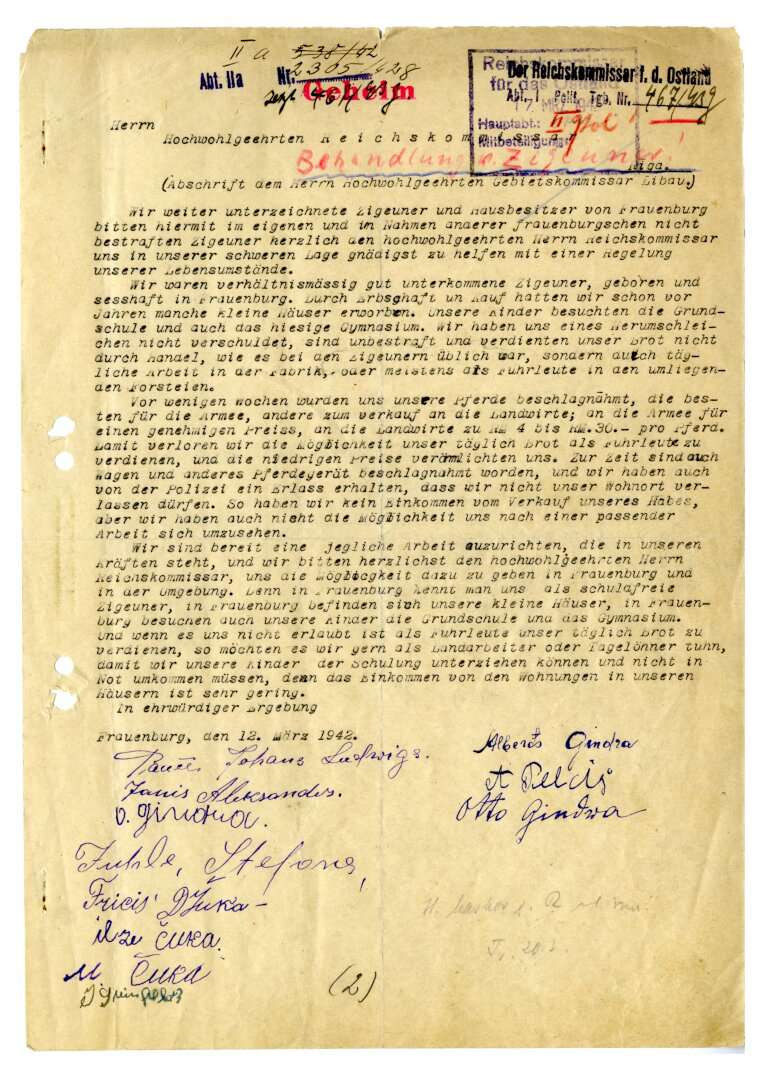Mister
Most Esteemed Reich Commissar
Transcript to Mister Most Esteemed Regional Commissar of Libau.
We, the undersigned Roma* and house owners from Frauenburg, herewith wholeheartedly request on our own behalf and that of other unpunished Frauenburg Roma* that the esteemed Mister Reich Commissar mercifully help us, caught in a difficult situation, arrange a settlement with respect to our living circumstances.
We were relatively well-situated Roma*, born and settled in Frauenburg. Through inheritances and purchases, we had been able to acquire a few small houses years ago. Our children attended primary school and also the local secondary school. We were never guilty of prowling around, have no criminal convictions and have not earned our living through mongering, as was customary among Roma*, but instead have worked in the factory every day or mostly as carters in the surrounding forests.
Our horses were seized a few weeks ago, the best ones for the army, the others for sale to the farmers; the price for the army was acceptable, for the farmers between RM 4 and RM 30 per horse. This has deprived us of the possibility to earn our daily bread as carters, and because of the low prices we’ve soon become poor. Meanwhile, wagons and other gear have been seized as well, and we have also received a directive from the police that we are not permitted to leave our place of residence. We have no income from the sale of our possessions, but we are also unable to look for suitable work.
We are willing to do any kind of work that we are capable of, and we wholeheartedly ask the esteemed Herr Reich Commissar to give us the opportunity to do so in Frauenburg and the surrounding area. In Frauenburg we are known as Roma* who have never done any wrong, we have our small houses in Frauenburg, our children attend primary and secondary school in Frauenburg.
And if we are not permitted to earn our daily bread as carters, we would like to work as farmhands or day labourers so that our children can continue their schooling and do not perish in misery, since the income from the apartments in our houses is very low.
In honorable veneration.
Frauenburg, 12 March 1942.
sgd Paul Johans Ludwigs
sgd Janis Aleksanders
sgd O. Gindua
sgd Juhle Stefans
sgd Fricis Djuka
sgd Ilze Čuka
sgd M. Čuka
sgd J. Steinfelds
sgd Alberts Gindra
sgd A. Pelds
sgd Otto Gindra







